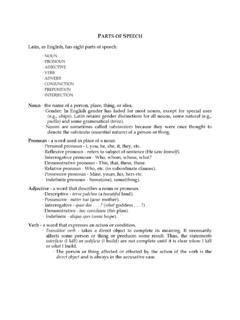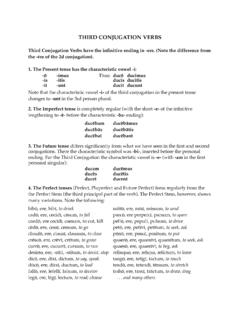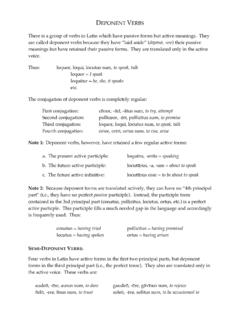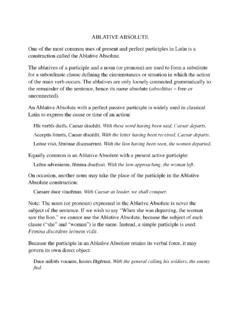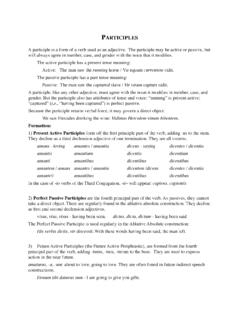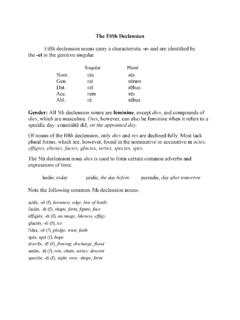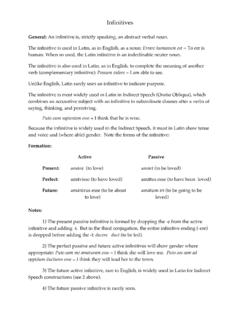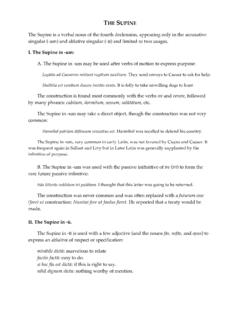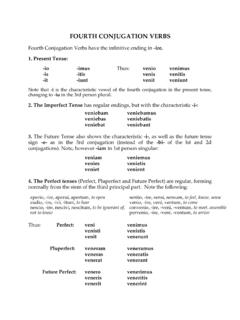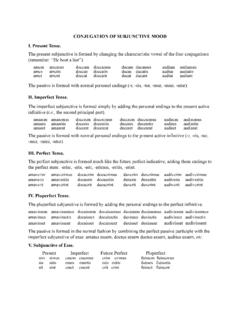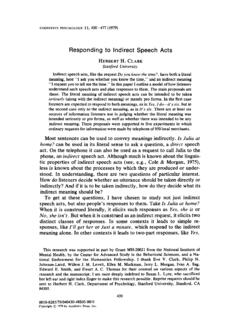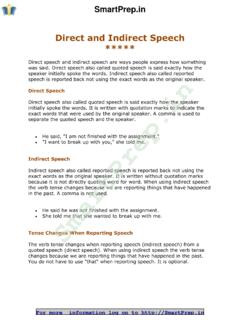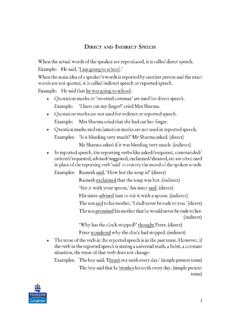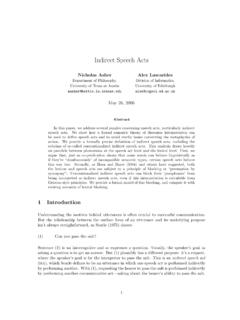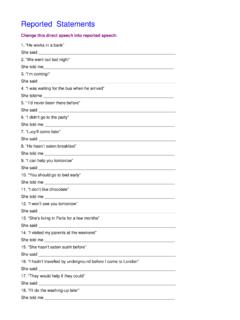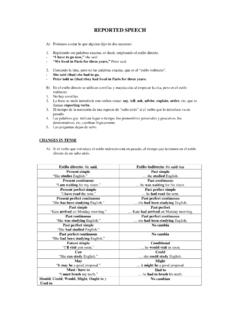Transcription of INDIRECT STATEMENT (ORATIO OBLIQUA - The Latin Library
1 INDIRECT STATEMENT (ORATIO OBLIQUA ) General: The STATEMENT He scatters dragon s teeth on the land is a direct STATEMENT ( r ti recta): Dent s drac nis in terr spargit. But after words of saying, denying, announcing, telling, showing, knowing, not knowing, believing, thinking, hearing, seeing, feeling, hoping, fearing, and the like, we are able to express statements indirectly ( r ti obl qua): He says that he scatters the dragon s teeth on the land. He hopes that he scatters the dragon s teeth on the land. Formation: In English INDIRECT statements are introduced by a subordinating conjunction that, which has no equivalent in classical Latin . Instead, a subject accusative + infinitive is used. The subject of the old direct STATEMENT (he) is made accusative (eum) and the verb (scatters) is put into its infinitive form (spargere). This usage also may be found in English (though less commonly than the subordinate clause with that): I believe him (subject accusative) to be (infinitive) a good man.
2 When dealing with INDIRECT speech , only the subject and the verb are changed - the rest of the sentence remains unchanged. direct STATEMENT : Dent s drac nis in terr spargit. INDIRECT STATEMENT : D c eum dent s drac nis in terr spargere. Reflexive in INDIRECT STATEMENT : If the subject of the INDIRECT STATEMENT is the same as the subject of the main (introducing) verb, the reflexive pronoun is used: D cit s drac nis dent s in terr spargere. He says that he (himself) scatters the dragon s teeth on the land. D cunt s drac nis dent s in terr spars ros esse. They say that they (themselves) will scatter the dragon s teeth on the land. FORMS FOR INFINITIVES: Each verb has six infinitive forms, five of which are in common use and must be learned: Active Pres. laud re mon re d cere aud re Perf. laud visse monuisse d xisse aud visse Fut. laud t rus esse monit rus esse duct rus esse audit rus esse Passive Pres.
3 Laud r mon r d c aud r Perf. laud tus esse monitus esse ductus esse aud tus esse Fut. laud tum r monitum r ductum r aud tum r The future passive infinitive is rare.
